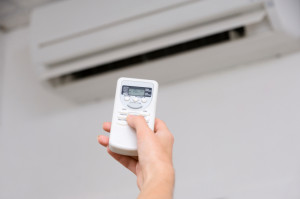“Greening up” your home is a two-prong approach: It’s partly conserving natural resources (like water) and partly helping homeowners save money. Of all the natural resources, water is perhaps the most over-used. You leave the water on while brushing your teeth, haven’t mastered the art of perfectly packing a dishwasher, and maybe you indulge in a few too many long hot showers than is really necessary. Luckily for the sustainably-minded homeowner, water conservation is actually much easier than you think.
Consider a water-powered sump pump as an easy and reliable way to backup your plumbing system. There’s zero motor or battery and it’s fully automated. In other words, it pumps when necessary and doesn’t waste a single iota of energy, nor does it produce any toxic side effects (which isn’t the case with battery-operated sump pumps). Try out these tips for water and energy conservation around your home, whether it’s time to replace that sump pump or you just want to optimize your daily efforts for Mother Nature.
When (not) in use…
A lot of resources and energy is wasted out of sheer forgetfulness. For example, leaving lights on in empty rooms, not sealing off unused room (like guest bedrooms) and allowing heated or cooled area to infiltrate it, or leaving the water running while scrubbing your face. Every piece of energy counts, but it can be tough to break old habits. Try keeping track of every effort made and wasted, because writing it down makes it realer.
Make the most of natural light and simultaneously depend less on energy. This is especially useful in summer months when those long days provide plenty of light for reading, chores, or lounging around. Consider a soy candle for the evenings in lieu of too many lamps or overhead light. Not only does it conserve energy, it’s also kinder on the eyes.
Maximize your appliances
With the advent of new clothes detergent technology, separating whites and colors aren’t as necessary which means fewer laundry loads. Track your family’s patterns and try to consolidate clothes washing as much as possible. Ensure your drycleaner is eco-friendly, and skip the dryer when you can. Hang drying clothes either on a line outside or on a rack indoors doesn’t just save oodles of energy, but also prevents wear and tear on garments.
When it comes to the kitchen, this is a hub of wasted energy. Defrost frozen items in the fridge instead of the sink or counter to protect against germs, but also make your fridge work less to keep cool. When cooking, plan accordingly and double up on oven items so baking time is minimized. Instead of relying on the garbage disposal for all the dirty work, consider adding composting to your family’s life and get a gorgeous garden or potted plants on top of reducing waste.
Every action counts
Walk or bike whenever possible to cut down on errand-based carbon footprint loads. From getting groceries to going to the bank, those in a populated area are probably closer than they think. Everything adds up, so make your daily tasks count.
